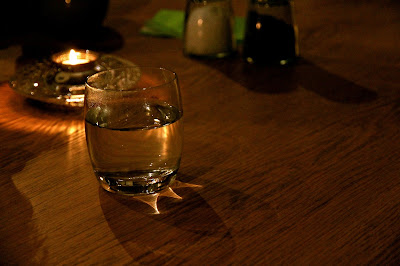 |
| "Just a Sharpie and a glass: Kiwi ingenuity leads to easy quake measurer" |
The house we
are staying in overlooks Wellington. It’s beautiful. The Tararua mountain range
in the distance, the Orongorongas stretching down the other side of a harbour
on which weak, dappled sunlight wavers. It all seems quite…developed. Affluent.
Peaceful.
Yet, “20
seconds of horror” screams the headline. The first seven pages of today’s
newspaper are all about the quakes that have shaken the area over the weekend.
Emails with
solemn tones have been circulated between journalism students. The expectation
is to rush in to the un-earthquake secure building at dinnertime on a Sunday
night and excitedly find people who had to rush to shelter, whose bookshelves
lost their books or whose vase broke.
It’s not that
I don’t care about the earthquakes, or the people who have to pick up bottles
or books or even the one person who was injured by their TV coming loose off
the wall.
It’s just
that, well, I worry.
I worry about
the fact that my friends in the US and around the world are being told that an
“earthquake more powerful than 100 atomic bombs and the Christchurch quakes of
2011” has hit Wellington. For, on first glance of these articles, they are
completely justified in feeling worried that we are in a dire situation.
Beyond that, I
worry about what Wellington would do if a really devastating earthquake hit,
whether the world would think nothing of it as we think nothing of natural
disasters in other small nations. It’s not their fault for not being concerned
- they’ve just heard it all before.
So let’s take
a new approach.
New Zealand
sits right on the fault line where the Pacific plate has been jammed under the
Indo-Australian plate. In fact, that subduction line that circles the Pacific
and creates the ring of fire is right behind our house.
“Wellington Earthquake free for eight
months”
The media
reaction to something so natural to the earth as an earthquake serves as an
illustration of how humans have unquestioningly come to believe we rule the
natural world. Unfortunately, monotheistic religion can take a lot of the blame
for that, in propagating ideas of the earth being ours to reap and condemning
other belief systems that consider humans at one with nature.
“Kiwis reminded of the incredible power
of nature”
For how dare
the earth, which formed by these processes over billions of years for us to
live on and enjoy now, shake the house we have built with cut down trees or
paid for with a concept of money we have created?
“Amazing subduction process going on
right under our feet”
Despite my
hesitancy at going into a field that expects me to instill fear in people in
one of the safest countries in the world for the sake of selling papers, hits
or page counts, I do love journalism. I love telling important stories about important
issues, I love inspiring people, entertaining and educating them, and believe
this is what the media should be about.
That’s why I
believe people deserve more than simply fear instilling, sensational reporting.
That’s why people deserve to hear more about the plates and the incredible
forces of nature than someone falling off their seat in a movie theatre. There is
a place for discussing emergency plans, which has been done, but why not find
out who has opposed earthquake strengthening and see what they think now?
Yes, I know,
because we are writing to that mythical eleven-year-old who reads the news
every day but wants his or her entertainment.
How about -
“Hey John, Wellington ROCKS!”*
*Earlier this
year Prime Minister John Key referenced Wellington as being a “dying city”.
Needless to say, people in the capital weren’t happy about that. Cheers Guy for saying this!

